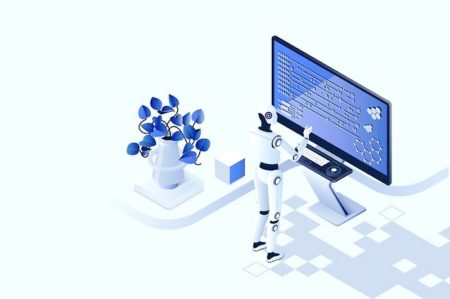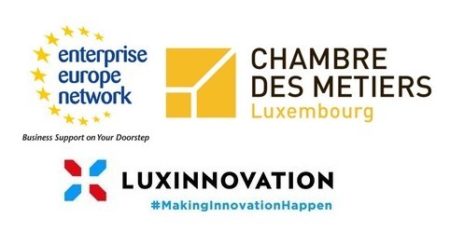
Machine learning is a technology that enables machines to learn and adapt to given situations. With the rapid progress of computers, information and communication technologies, IoT, etc., more and more concrete projects are being developed within companies using this technology.
It obviously also represents an opportunity for the crafts sector, as it brings added value in areas such as maintenance, production and safety.
This is why this topic was chosen at the “Club Innovation”, jointly organised by Luxinnovation and the Chamber of Skilled Crafts, with Gregory Nain, Co-Founder and Head of Operations at DataThings, as keynote speaker. “The company was founded in 2017 as a spin-off of the SnT at the University of Luxembourg,” he explained. “We were researchers wanting to make data analytics, machine learning and artificial intelligence more accessible to industry.”
The company has developed GreyCat technology, which provides support for the implementation of software systems dedicated to industries in a very wide range of fields. For example, the technology makes it possible to perform advanced analytics on commodity hardware and then scale up and unleash the potential of operational improvements brought about by machine learning or artificial intelligence (AI).
“There is nothing magical about artificial intelligence,” said Mr Nain. “It’s a process of learning from experience. Automatic algorithms need to be given clean, useful data in order to provide meaningful results. In addition, the knowledge of domain engineers and/or industry operators is essential to explore the full potential of AI and, thus, achieve faster and more accurate results.”
The fields of application are then very vast: detection of deviations from “normal” behaviour, quality control, predictive maintenance, prediction of values (with the highest probability), etc.
Prioritise communication with experts
“Building an effective digitalisation project means more than models and data,” confirmed Alois Turuani, data scientist at Ceratizit, an engineering group specialising in cutting tool and hard material solutions. “You have to combine the experience of non-digital native workers with the right technology.”
While AI is often touted as a one-size-fits-all, out-of-the-box solution to many problems, Ceratizit favours a more holistic approach, relying both on the qualities of existing employees, the identification of the – often hidden – limitations of a “blind” machine learning approach, and the – sometimes surprising – benefits that simple data science solutions can bring when properly integrated into the existing production environment.
“Working with data from production is a real challenge,” concludes Mr Turuani. “Having data is not enough; communication with technical experts is also very important.”
Improved responsiveness, reduced costs
Another example presented at this “Club Inno” showed the usefulness of using machine learning approach in the dynamic monitoring solution for digital building management and the optimisation of water and electricity consumption. This is a necessity when you consider that operating and maintenance costs represent about 75% of the total cost of a building over its entire life cycle.
“So-called connected maintenance allows the collection of data on the use of equipment remotely, without the need to move a technician to the site in order to monitor its operating cycles,” said Christophe Antoine, Co-founder and CFO of Polaar Energy, a start-up that emerged from the Fit 4 Start programme managed by Luxinnovation and that offers smart sensors to optimise the consumption of water, electricity and energy by monitoring the digital data collected.
According to him, the implementation of IoT systems provides many benefits for building managers: the anticipation of maintenance operations, increased responsiveness in case of breakdowns or the guarantee of the reliability of an installation.
“By digitalising a building and collecting consumption data, it is possible quickly detect leaks and anomalies and optimise consumption to reduce the environmental impact. In addition, this information also helps improve the responsiveness of technical teams and reduce costs.”
“Machine learning is currently associated with high technologies, but its development allows us to envisage a more generalised use in the near future. The craft industry will surely be able to benefit from it as well,” notes Claude Hostert, SME Performance Advisor at Luxinnovation.
The national innovation agency, along with the Chamber of Skilled Crafts, is available for companies wishing to receive support with their innovation projects, with or without artificial intelligence.
The next “Club Inno” will take place on 28 June, from 5:00 pm to 6:00 pm, on the theme “Virtual and augmented reality in the crafts industry”. Registration HERE.

